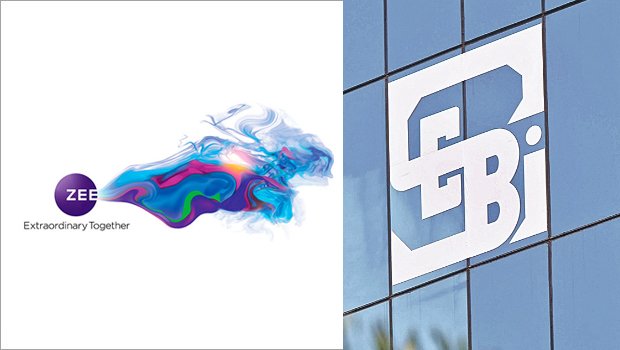In a stunning turn of events, the Securities Appellate Tribunal (SAT) has delivered a significant blow to the Securities and Exchange Board of India (SEBI) by quashing its ban on Punit Goenka, the former CEO of ZEE Entertainment. This decision marks a pivotal moment in a high-stakes legal battle that has captured the attention of the business world. SAT’s ruling comes as a resounding victory for Mr. Goenka, who had been embroiled in a contentious dispute with SEBI for several months.
The legal showdown between Punit Goenka and SEBI dates back to [provide a brief background on the case, including reasons for SEBI’s initial ban]. The ban imposed by SEBI had a far-reaching impact on Goenka’s career and reputation, making this verdict a momentous occasion for both him and the Indian financial markets.

SAT’s decision to overturn SEBI’s ban is set to reshape the landscape of corporate governance and regulatory actions in India. The tribunal’s comprehensive judgment has been celebrated by Goenka’s legal team, who argued passionately in his defense. It is being hailed as a victory for justice, the rule of law, and corporate leaders who find themselves entangled in similar regulatory disputes.
The SAT Verdict
The SAT, in its judgment, meticulously reviewed the evidence and arguments presented by both sides. The tribunal expressed concerns about the SEBI ban, highlighting potential procedural irregularities and a lack of concrete evidence to substantiate the allegations against Punit Goenka. This critical evaluation led the SAT to conclude that the ban imposed on the former ZEE CEO was unjustified.
The tribunal’s decision rested on several key factors:
1. Procedural Concerns:
SAT noted that SEBI’s proceedings against Goenka may not have adhered to proper legal procedures. This raised questions about the fairness of the regulatory action.
2.Insufficient Evidence:
The tribunal found that SEBI’s allegations against Goenka lacked substantial evidence to support the ban, and the case against him was not adequately substantiated.
3. Implications for Corporate Governance:
SAT’s ruling highlighted the broader implications of such bans on corporate leaders. The tribunal stressed the need for a balanced and evidence-based approach to regulatory actions.
4. Restoration of Reputation:
The decision to lift the ban is seen as a step towards restoring Punit Goenka’s reputation, which had suffered in the wake of the SEBI action.
5. SEBI’s Future Actions:
SAT’s verdict also raises questions about the processes and criteria used by SEBI in taking regulatory actions against individuals and entities, prompting calls for greater transparency and accountability.
 Impact on ZEE Entertainment
Impact on ZEE Entertainment
The legal battle between Punit Goenka and SEBI has been closely watched by the media and the business community. The uncertainty surrounding Goenka’s status as the former CEO of ZEE Entertainment had cast a shadow on the company’s operations and stock performance.
With SAT’s decision to lift the ban on Goenka, ZEE Entertainment is expected to experience a positive shift in sentiment among investors and stakeholders. The company can now focus on its strategic objectives and regain stability in its leadership.
Punit Goenka, in his reaction to the verdict, expressed gratitude for the support he received during this challenging period and emphasized his commitment to the growth and success of ZEE Entertainment. The company, in a statement, welcomed the tribunal’s decision and reiterated its dedication to delivering value to shareholders.
 Reactions and Future Implications
Reactions and Future Implications
The SAT’s ruling has ignited a passionate debate about the regulatory environment in India. While some view it as a reaffirmation of the rule of law and the importance of evidence-based decisions, others raise concerns about the potential challenges this decision may pose for regulatory authorities.
Several corporate leaders and legal experts have weighed in on the verdict. Many believe it sends a powerful message about the need for fairness and due process in regulatory actions, while others argue that it might make it more challenging for regulators to take swift and decisive actions when necessary.
In light of this verdict, SEBI will likely face increased scrutiny and calls for transparency in its regulatory proceedings. The case has spurred discussions about the broader regulatory framework in India and the potential need for reforms to ensure a fair and efficient regulatory system.

As for Punit Goenka, the lifting of the SEBI ban is a vindication of his innocence and professional integrity. He now has the opportunity to rebuild his career and contribute further to the corporate world.
Conclusion
The SAT’s decision to quash SEBI’s ban on Punit Goenka represents a turning point in a closely followed legal battle. It highlights the importance of fairness, transparency, and evidence-based decision-making in regulatory actions against corporate leaders. The case has sparked a significant debate about the regulatory framework in India and has far-reaching implications for the future of corporate governance and regulatory actions.
Punit Goenka’s victory is seen as a triumph for the rule of law and a step toward restoring his reputation. It also marks a new chapter for ZEE Entertainment as the company can now focus on its strategic objectives without the cloud of uncertainty hanging over its former CEO.
This landmark verdict serves as a reminder of the delicate balance between regulatory oversight and individual rights, a balance that shapes the future of corporate India. The implications of this decision are expected to resonate in the corporate and regulatory landscape for years to come.
Read also: SEBI bars Nasiruddin Ansari from capital markets for violations.

 Impact on ZEE Entertainment
Impact on ZEE Entertainment Reactions and Future Implications
Reactions and Future Implications









